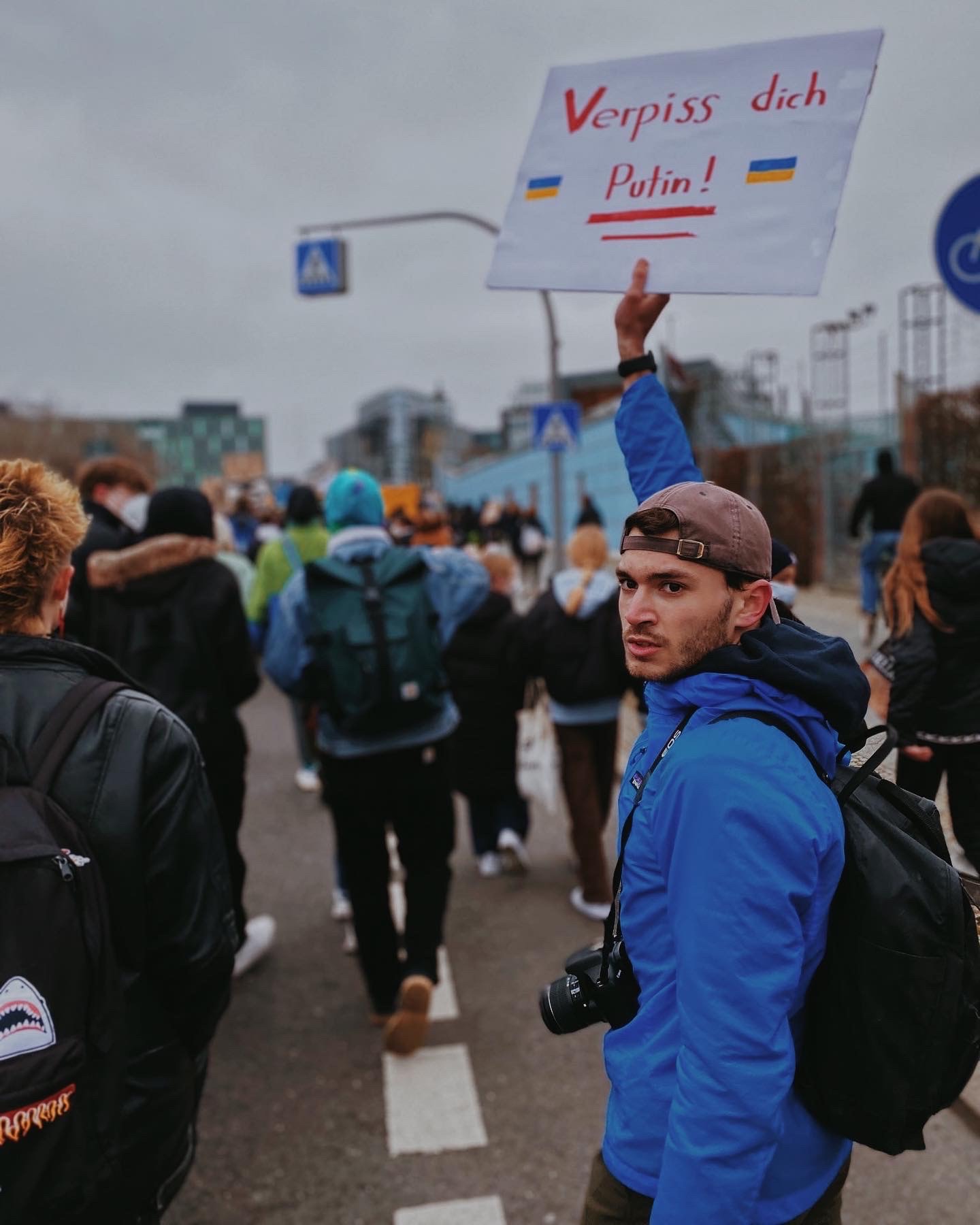Students and alum abroad speak on the impacts of war in Ukraine on their work in Europe. PHOTOS CONTRIBUTED BY: Ryan Frankel
While there is a long distance between the University of Rhode Island and Ukraine, many members of the university community are studying in Europe and have seen lives change since the Russo-Ukrainian war began.
Ryan Frankel is a junior German language and political science double major from Scituate, Massachusetts. He is currently studying abroad in Berlin for a semester at the Freie Universität. He said that even in the short time since he arrived in Germany, there have already been noticeable physical and economic changes.
“Leading up to the beginning of the conflict there was always this debate in Germany regarding the country’s stance towards Russia,” Frankel said. “Germany and the U.S. have been working really closely along with members of NATO. They imposed harsh economic sanctions, started sending military aid to Ukraine, and even closed down the controversial Nord Stream 2 natural gas pipeline.”
The war is affecting people all over the world, especially in Europe. A migrant crisis is happening across Europe, with over 2 million refugees having fled Ukraine since the war began. Berlin alone is taking in over 1,000 refugees per day. Organizations are requesting people take in refugees if they have any extra rooms or beds, according to Frankel.
“One of my classmates is from Ukraine and received a call from a family member a couple weeks ago saying that the Russians had bombed her hometown — this was just the beginning where I started to understand how real this conflict had gotten,” Frankel said.
Frankel decided to help out by attending protests and volunteering for local organizations that help Ukrainian refugees. He has also signed up to help at the Hauptbahnhof (central train station) greeting and assisting refugees as they arrive.
“I even had the opportunity to speak at a rally in front of the Chancellery,” Frankel said. “I spoke about my concerns about being a young American abroad and called out the German government for their response to this crisis. I told the people of Berlin that we can close down the gas pipelines, we can suffocate the power of the banks and the oligarchs, we can turn the ruble to rubble; but more needs to be done.”
According to Frankel, people are using subway stations as bomb shelters, babies are being born in the shelters because ICUs are being destroyed by Russian bombs and nurses need more medical supplies and equipment.
“This war goes beyond Ukraine,” Frankel said. “To paraphrase President Zelensky— ‘If Ukraine falls, all of Europe will fall.’”
Jay Rumas graduated from URI in 2021 with majors in political science and history. He is from North Smithfield, Rhode Island and is currently doing research with the Fulbright Program in Prešov, Slovakia, a country directly bordering Ukraine. The changes he has noticed have been mainly refugees.
“I have seen refugees in every train station; hundreds of them were crowded into a train that I took to Prague,” Rumas said. “They had their cats, dogs, belongings, and everything that they could carry with them. More than 200,000 have crossed into Slovakia, a nation of 5.5 million people, so far.”
The crisis has drastically changed the scope of Rumas’ project, which was to observe how populism appeals to the Carpatho-Rusyns of Slovakia, a minority ethnic group in the northeast part of the country. Since the war’s outset, he has begun documenting the effect of the war on the population.
Rumas has also been helping out when he can by going to protests and volunteering.
“I went to a vigil in the city center on the second day of the invasion where students and locals, many of them Ukrainians, gathered to speak, sing, and discuss what was on their minds,” Rumas said. “A few days later, I traveled to the nearby city of Košice to help with refugee relief. At the city’s main train station, I saw many refugees sitting on chairs and the floor waiting for connections or for help.”
Both Frankel and Rumas have seen many ways that this war is affecting Europe and the world. They are both advocating for peace and helping out how they can. As all of us, they are hoping for this war to end soon.





